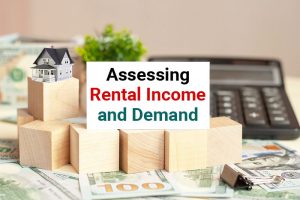
Property investment has long been a popular means of creating wealth and generating passive income. Many Australians have found success in purchasing investment properties and reaping the benefits of capital growth and rental income.
But is property a good investment always? In this guide, we explore the pros and cons of property investing, delving into the different types of investments, real estate markets, and strategies to help you make informed decisions and maximize your returns.
Short Summary
- Property investment requires extensive research and understanding of the real estate market to be successful.
- Factors such as location, timing, land content, economic conditions, and infrastructure improvements must be considered for capital growth potential.
- Professional advice can provide valuable insights into diversifying portfolios and managing risks associated with property investments.
Understanding Property Investment

But before you embark on your property investing journey, it’s essential to understand the intricacies of the property market and the factors that can influence your success.
Types of Property Investments
There are several types of property investments to choose from, including residential, commercial, and industrial properties. Each type has its own unique features and investment possibilities, making it essential to carefully consider your options when purchasing your first property.
Regardless of the type of property, location plays a crucial role in determining its potential for growth and rental demand. By understanding the different property types and their respective markets, you can make informed decisions that align with your investment strategy and financial goals.
Real Estate Markets
Real estate markets can be classified as primary, secondary, and tertiary, with each market having its own unique features and investment possibilities. High-growth areas generally exhibit factors such as a sizable and expanding population, access to public facilities, a prosperous job market, desirable school districts, low crime rates, access to public transportation, advantageous taxes, and reasonable insurance rates.
Thorough research is essential when buying an investment property and determining how to acquire it.
Evaluating Capital Growth Potential

Therefore, it’s crucial to focus on factors such as location, infrastructure, and economic conditions when assessing the potential for capital growth.
Market Research
Conducting market research can help you identify areas with strong growth potential. Analyzing factors such as the median sale price for the suburb, whether it has increased over the past few years, and the overall trends in the property market can provide insight into capital growth potential.
Tools such as Westpac’s property market research tool can offer valuable information on properties and suburb trends across Australia, including:
- Past sales in the area
- Demographic information
- Nearby schools
- Median rental income
Factors Affecting Capital Growth
Several factors can impact capital growth, including:
- Location
- Timing
- Land content
- Economic conditions
- Population changes
- Supply and demand
- Infrastructure improvements
For instance, an increase in population can result in a rise in demand for property, leading to an increase in capital growth.
By understanding these factors, you can make informed decisions when selecting properties with strong potential for capital growth.
Assessing Rental Income and Demand

Limited listings and vacancies in an area indicate a robust rental market, which can allow landlords to increase rental rates and boost returns.
Calculating Rental Yield
Rental yield is a measure of the return on investment from a rental property, expressed as a percentage of the property’s value. It is calculated by dividing the annual rental income by the property’s value. For example, if the annual rental income is $20,000 and the property’s value is $400,000, the rental yield would be 5%.
A higher rental yield implies a higher return on investment, making it a more financially viable investment
Factors Affecting Rental Demand
Various factors can affect rental demand, such as:
- Price
- Location
- Proximity to amenities
- Security
- Layout
- Finishes
- Age of the property
- Governance of a body corporate
By understanding these factors and selecting properties that cater to the needs and preferences of potential tenants, you can maximize rental demand and boost your rental income.
Making sure that your rental property is attractive to potential tenants is key to ensuring a steady stream of tenants.
Financial Considerations

Property investment can incur a significant amount of debt, which can lead to financial difficulty or stress if not managed properly.
Costs and Expenses
There are several costs and expenses associated with property investment. These include the purchase price, stamp duty, legal fees, and other related expenses when acquiring a property. Ongoing costs are an important part of home ownership. These include mortgage repayments, council rates, upkeep and renovation expenses, as well as insurance premiums.
Selling a property also comes with its own set of costs, such as agent fees and legal fees.
Financing Options
Various financing options are available for property investment, including:
- Conventional bank loans
- Hard money loans
- Private money loans
- Home equity loans
- Interest-only loans
- Principal and interest home loans
- Pooled funds from private investors
- Lease options
- Portfolio lenders
- Seller financing
- Lines of credit
Interest-only loans are a popular option for purchasing investment properties, especially during the interest only period. By understanding the different financing options, you can choose the one that best suits your financial goals and personal circumstances.
Tax Deductions and Benefits

Expenses relating to daily management and maintenance of rental property, also known as property expenses, can help reduce the tax burden. This is made possible by utilizing the expenses incurred to set off income.
Risks and Challenges

For example, you can diversify your portfolio to reduce the risk of market fluctuations.
Market Fluctuations

- Market price movements
- Demographic shifts
- External influences
- Investor behavior
By staying informed about market trends and being prepared for potential fluctuations, you can better navigate the ups and downs of the property market.
Liquidity Issues

To mitigate liquidity issues, it’s essential to have a financial buffer in place and plan for the possibility of needing to sell the property.
Dealing with Problematic Tenants

To minimize the risk of having problematic tenants, consider conducting comprehensive background checks, requesting references, and specifying clear expectations in the lease agreement.
Tips for Successful Property Investing

It is important to take the time to understand the different types of investments available and the risks associated with them.
Choosing the Right Property

Ultimately, the right property for you will depend on your investment strategy and financial goals.
Building a Diversified Portfolio

- Stocks
- Bonds
- Mutual funds
- ETFs
- Real estate
- Commodities
- Other alternative investments
This will help create a well-rounded portfolio.
Regular review and rebalancing of your portfolio are highly recommended to ensure continued success.
Seeking Professional Advice
Consulting with professionals such as financial planners, real estate agents, and property managers can provide valuable insights and advice tailored to your specific situation and objectives. These experts can help you navigate complex processes and regulations, saving you time and energy, and providing you with the confidence that you have made informed decisions with the assistance of an expert.
When researching professionals, assess their qualifications, experience, and track record, and ask pertinent questions to gauge their communication style and approach.
Summary
Property investment can be a rewarding endeavor when approached with a well-informed strategy and a clear understanding of the various factors that can impact your success. By conducting thorough research, seeking professional advice, and building a diversified portfolio, you can maximize your returns and achieve your financial goals in the world of property investing. Remember, the journey to property investment success starts with a single step – make it a well-informed one.
Frequently Asked Questions

Is property a high risk investment?
Property investment carries a higher risk than many other investments, as it is subject to physical damage and market fluctuation. It is possible to limit this risk through careful planning and research, but it remains a higher risk than some other investment options.
By taking the time to research the market and plan carefully, investors can reduce their risk and increase their chances of success. It is important to understand the risks associated with property investment and to be aware of them.
Is it better to invest in super or property?
If you’re looking for a long-term retirement income, superannuation is a good option.
However, if you’re looking for an investment to benefit from before retirement, property may be the better choice.
Is it still worth buying an investment property?
Buying an investment property is still worth it for long-term gains, as it has the potential to generate positive cash flow and increase in value.
It can be a great way to diversify your portfolio and build wealth over time. With the right research and planning, you can find a property that will provide a steady stream of income and appreciate value.
You.
What are the primary objectives of investing in property?
Investing in property is a great way to build wealth and generate passive income over time.
It can be a lucrative investment if done correctly, and it can provide a steady stream of income for years to come.
However, it is important to do your homework.
What factors should be taken into account when selecting the appropriate property?
When selecting a property, it is important to consider the location, condition, and potential for capital appreciation and rental yield. This will ensure an informed decision is made.













